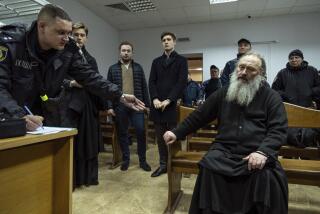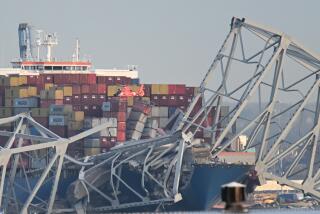The left finds an avenging angel in Katrina
PEOPLE CAN’T live without meaning.
That is why they are tempted to ascribe meaning to Hurricane Katrina and other tragedies. Some religious groups have said the devastation of New Orleans is the wages of sin brought on by the “decadent” lifestyle of that city.
For the anti-religious, those claims are tempting to dismiss. But it is not necessarily foolish for religious people to ascribe suffering to sin, a link that can emanate from a noble desire to self-examine. For example, the ancient rabbis ascribed the destruction of the Jewish state and its holy temple -- the worst Jewish tragedy prior to the Holocaust -- to the sins of the Jews themselves, specifically the sin of “gratuitous hatred” among Jews.
This is a powerful idea. First, it prevents a people from seeing themselves as victims who bear no responsibility for their plight. Second, it serves as a lesson to all nations that internal hatred is more destructive than external enemies.
In the micro realm, many of us have seen tragedy in our lives not as meaningless bad luck, but rather as an opportunity to learn. The worst events in many of our lives have sometimes proved to be positive, life-altering experiences.
And many tragedies really are caused by human sin. The drunk driver who kills is an obvious example.
Like most good traits, however, the religious tendency to see God’s judgment in tragedy comes with prices. One is using the noble idea of self-judgment to judge others unfairly. Another is substituting one’s own judgment for God’s. And still another is that religious people can sound so foolish that they render God and religion foolish to others.
As a rule, we should not attribute the suffering of other people to divine punishment. We can do so when we suffer, though this too comes with a price -- it can lead to gratuitous guilt. Nothing is sadder than meeting people who suffer unjustly, such as parents who believe their sins are responsible for the death of their child.
If Katrina prompts the people of New Orleans to ask why their city is a murder capital or why its and Louisiana’s politics are particularly corrupt, the notion of a divine hand in natural tragedy can play a constructive role.
The irony of Katrina is that the secular left, more than the religious right, attributes the destruction to sin.
Leftists blame America’s sins, especially the mortal leftist sin of Washington’s refusal to sign the Kyoto Protocol on global warming.
Katrina was not caused by global warming. As a New York Times article pointed out on Aug. 30: “Because hurricanes form over warm ocean water, it is easy to assume that the recent rise in their number and ferocity is because of global warming. But [scientists say] ... the severity of hurricane seasons changes with cycles of temperatures of several decades in the Atlantic Ocean.”
For other leftists, the sin is the Bush administration’s tax cuts. The cuts, they argue, robbed the government of money needed to strengthen the levees. Never mind that the Clinton administration, which raised taxes, also failed to provide money for the work.
Humans recoil at the thought that tragedies occur without reason. We believe that they must have been brought on by sins -- real or not. The new wrinkle with Katrina is that the anti-religious left is identifying the sins and sinners. Leftism is itself a religion, and its list of sins is at least as long as that of any traditional religion.
More to Read
Start your day right
Sign up for Essential California for news, features and recommendations from the L.A. Times and beyond in your inbox six days a week.
You may occasionally receive promotional content from the Los Angeles Times.






